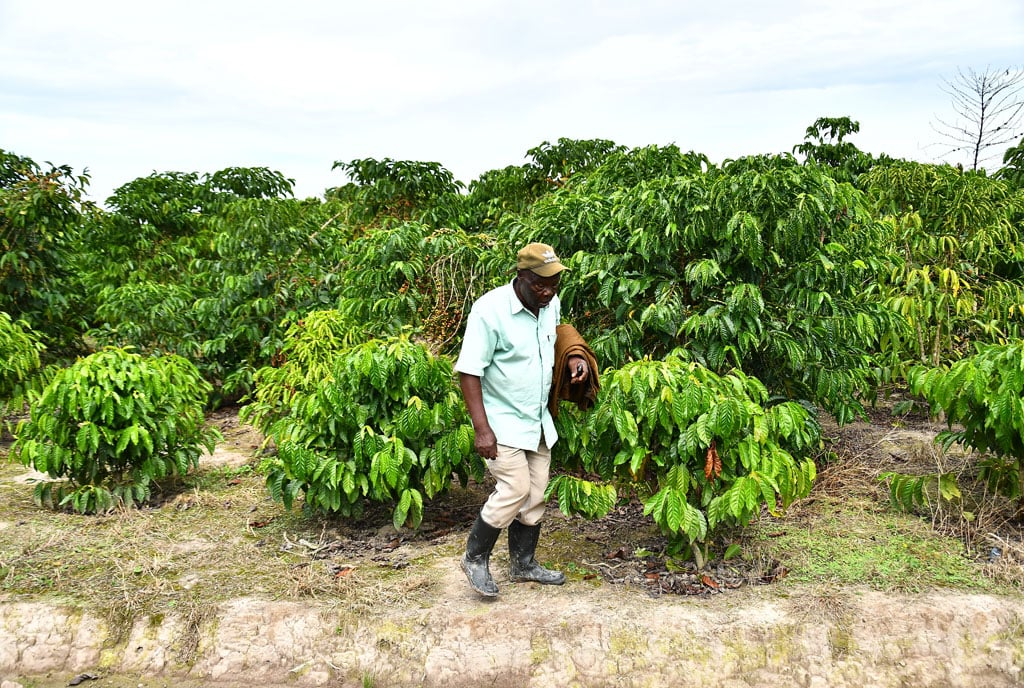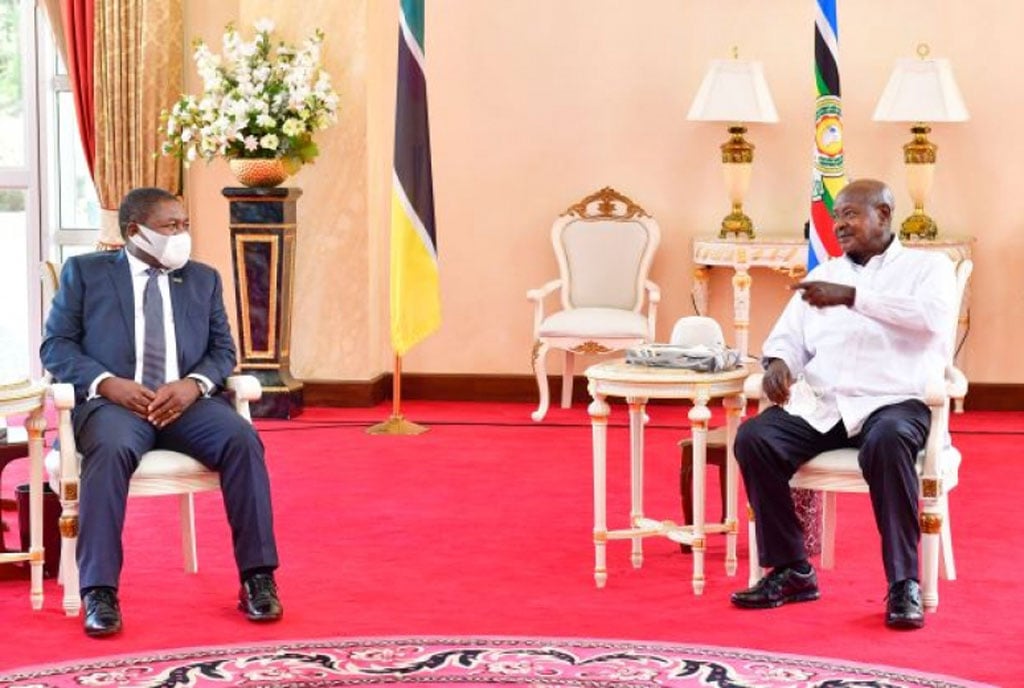Prime
Uganda moves to register coffee farmers as EU deadline looms

A coffee farmer is seen in his garden in Kyotera District on May 20, 2024. PHOTO/MICHEAL KAKUMIRIZI
What you need to know:
- The EU regulation requires evidence of no deforestation, which necessitates tracing coffee back to the farmer.
The Uganda Coffee Development Authority (UCDA) has announced a national registration of all coffee farmers to ensure compliance with European Union (EU) standards ahead of a December 30, 2024 deadline.
The EU Deforestation Regulation (EUDR) stipulates that farmers must prove that their coffee has been grown on land where no deforestation has taken place.
Addressing journalists in Kampala on Tuesday, Mr Robert Nangatsa, an extension manager at UCDA, said the government has so far allocated Shs13 billion towards the registration exercise, while development partners will also contribute more funds.
"The EU market is crucial for Uganda's coffee industry, accounting for approximately 60 percent of our exports. It is imperative that we comply with the EUDR to maintain access to this market," said Mr Nangatsa.
He explained that the EUDR requires exporters to submit detailed land-use maps and due diligence statements to ensure deforestation-free production.
"This means that we must provide geographic coordinates of production plots to ensure traceability and verify deforestation-free practices," he added.
The EU regulation is in line with the Uganda National Coffee Act, 2021, which stresses need for traceability in the coffee sub-sector. Even before the EUDR came into force, UCDA had developed a geospatial monitoring and evaluation system and farmer registration app to register farmers and other value chain actors.
"These innovative tools will empower coffee exporters to adhere to EUDR regulations and ensure the sustainability of our coffee sector," said Mr Nangatsa.
He said UCDA is working closely with the private sector, MDAs, and other stakeholders to ensure a seamless implementation of EUDR regulations.
Dr Gerald Kyalo, UCDA’s Director of Development Services, explained that registration involves capturing farm geo-locations and farmer details to ensure traceability.
"The registration is for traceability to know where your farm is located and how big it is. This will help in tracing the farm where a certain batch of export is coming from,” he said.

Gerald Kyalo, the director of development services at UCDA speaks during a meeting in Kampala on September 3, 2024. PHOTO/MICHAEL AGABA
For farmers with 10+ acres, polygons of their farms will be created for record purposes, enabling easy tracing of exported coffee. "As long as you have 10 acres and above, we shall take polygons of the garden. We take different coordinates and end up with polygons. For those below 10 acres, coordinates will be enough."
Kyalo noted that registration will be an ongoing process to accommodate new entrants into the coffee value chain. "The registration process will be continuous and done by UCDA. Our officers will update the register annually to include new farmers."
He stressed that the EU regulation requires evidence of no deforestation, which necessitates tracing coffee back to the farmer. "The regulation requires that we show evidence that our coffee doesn't contribute to deforestation. To do this, we need to trace our coffee back to the farmer and have a register of all farmers, gardens, and coordinates."
Mr. Samson Emong, representing the National EUDR Task Force, emphasised the critical need for accurate reporting on the campaign's progress, stressing that Uganda's coffee industry faces significant risks if it fails to meet the EU's deforestation and sustainability standards.
The taskforce presented a comprehensive plan to achieve EUDR/CS3D compliance, including measures to enhance supply chain transparency, promote sustainable agriculture practices, and support smallholder farmers.




